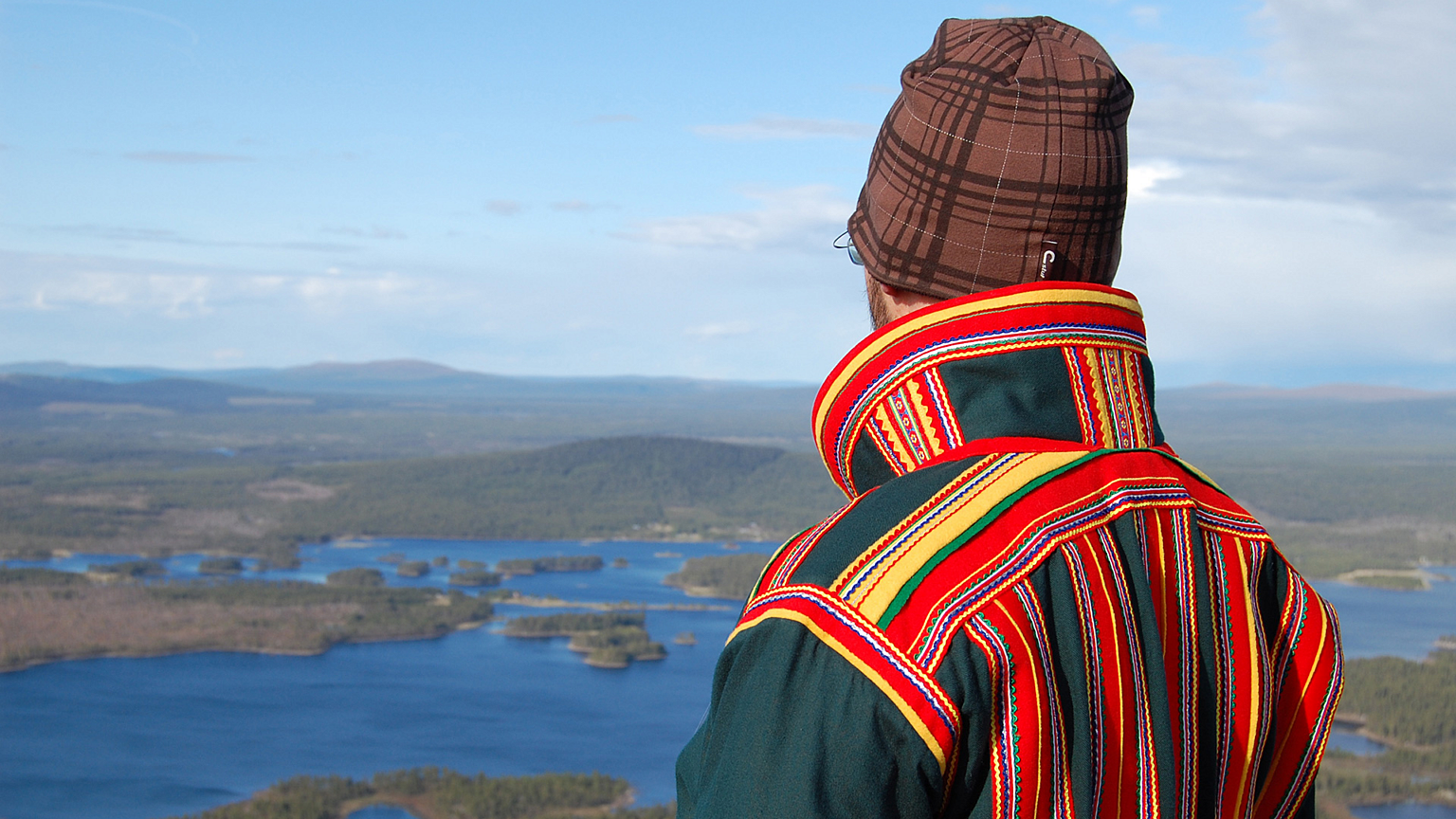Wayfinders Circle Four Reindeer Herding Communities Sue Swedish State to Grant Licenses for Small Game Hunting and Fishing in Sápmi
The Sámiid Riikkasearvi association supports the reindeer herding communities and aims to expand on a 2020 Supreme Court ruling. The decision recognized Sami's exclusive right to licensing within their area, acquired through time immemorial prescription.
Four reindeer herding communities of the Indigenous Sámi People in northern Sweden are suing the Swedish state for recognition of their traditional rights to manage small-scale hunting and fishing. This is the latest step in a three-decade-long fight by the Sámi people for their land rights across the Arctic region of Lapland, where the Sámi have historically lived and managed their lands as reindeer-herding communities.
The legal challenge by the reindeer herding communities of Ran, Sirges, Unna Tjerusj, and Báste follows a landmark, unanimous Supreme Court ruling in favor of the neighboring Girjas reindeer herding community. In 2020, the Supreme Court affirmed the Girjas’ exclusive right in relation to the state to grant small game hunting and fishing licenses.
The Girjas judgment contains statements that are also relevant to other geographical areas. But other reindeer herding communities have not received similar recognition, despite the precedent set by the Girjas
In August 2023, a committee appointed by the Swedish government (Renmarkskommitten) published a report titled ‘Hunting and fishing in reindeer grazing area’. The report confirmed that all reindeer herding communities in Lapland have the same rights as Girjas.
“It is clear that the only possible way forward, for us to gain recognition and respect for our rights and to manage these rights ourselves, is to turn to the courts as Girjas did. That is why we have now chosen to initiate legal proceedings against the state”, said a statement from the Sámiid Riikkasearvi (National Association of Sámi), an organization comprising all 44 Sámi reindeer-herding communities in Sweden.
Sámi communities take joint action through the Sámiid Riikkasearvi, which was established in 1950 and covers 40 percent of Sweden. It promotes the economic, social, legal, administrative, and cultural interests of the Sámi with a special focus on their reindeer husbandry.
The Sámiid Riikkasearvi asserts its right to participate in decision-making concerning its communities in accordance with the principle of Free Prior and Informed Consent (FPIC). In a recent statement, it has called on the government of Sweden to tackle growing racism against the Sámi as a result of their legal struggle for hunting and fishing rights.
Fighting for Lands, Culture, and Spirituality
In the 2020 ruling, the Supreme Court argued that the Sámi had exclusive rights over small game hunting and fishing in their territories dating back to the 18th century. These rights were lost over the decades as a result of colonization and should therefore be transferred to the members of the Sámi district today, the judges said. Their decision was rooted in Sámi customary law, Convention 169 of the International Labour Organization, and the UN Declaration on the Rights of Indigenous Peoples.
Over the decades, the reindeer herding communities have made significant progress in securing and protecting reindeer grazing, upholding sustainable management systems, ensuring local management based on the needs of local reindeer herding, and revitalizing societal structures and spirituality.
In particular, the Sámi have trained members in legal issues and forged connections with academics to consolidate historical data about their ancestral property and way of life and bolster legal arguments in their legal battles. They describe these battles as a fight to protect their right to lands, culture, language, spirituality, and Sámi natural philosophy.
Climate Threats in a Sustainable Ecosystem
Reindeer husbandry, which covers vast areas, is at the center of culture and society in Sámi communities. It is a traditional livelihood that relies on sustainable resource use and local Indigenous knowledge, following the long-standing principle in Sámi culture of using only what is needed.
The reindeer-herding communities consist of Sámi families with their own small family reindeer herding trade. Within the community, each reindeer-herding family has its own herd, and the tradition is passed on from generation to generation.
In recent years, commercial interests of different businesses such as mining, logging, and wind farms have put increasing pressure on Sámi territory and the reindeer herding communities. This pressure, combined with the effects of climate change, such as long winters and unusually high summer temperatures, is affecting the reindeer’s natural food sources and ultimately threatening the Sámi’s traditional way of life. Herders have to resort to purchasing supplementary feed for their herds or relocating reindeer to other grazing sites.
The Sámiid Riikkasearvi is a member of the Wayfinders Circle, an alliance of 15 Indigenous Peoples from around the world who stand at the frontlines of guardianship. They protect their lands, waters, and territories, guided by ancestral knowledge transmitted from one generation to the next.
The Wayfinders Circle is convened by Nia Tero (@NiaTero), Pawanka Fund (@PawankaFund), and the World Union of Indigenous Spiritual Practitioners (WUISP).
